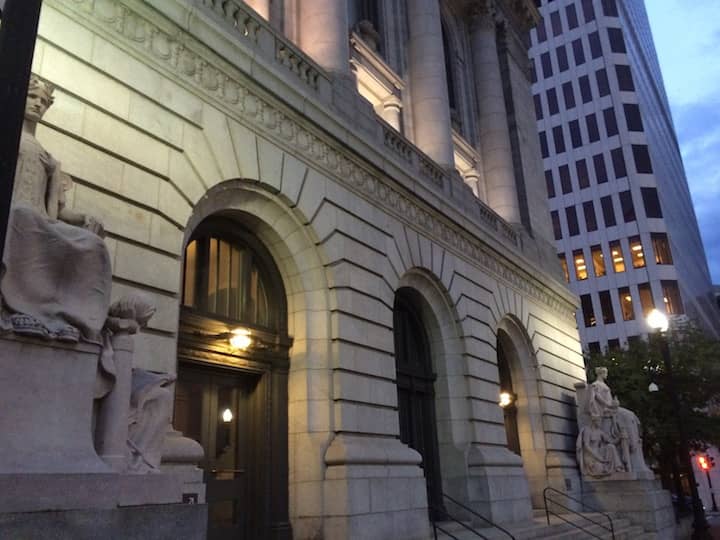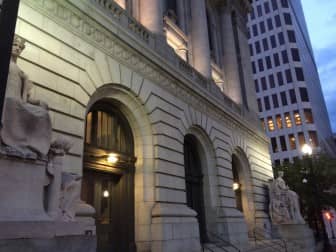

PROVIDENCE, RI — National hospice provider Gentiva, with 590 U.S. locations including Warwick, will pay $19.4 million to resolve a hospice fraud case alleging the company’s earlier incarnation submitted false claims and accepted overpayments for hospice services.
The company, created when Humana divested of its Kindred at Home divisions in 2022, provided the hospice services in question to patients who were ineligible to receive hospice benefits under various federal health care programs, United States Attorney Zachary A. Cunha announced Wednesday.
Gentiva’s hospice operations, headquartered in Atlanta, Georgia, include entities that previously operated Kindred at Home hospice locations under the names Avalon, Kindred, SouthernCare, and SouthernCare New Beacon, including a facility at 2374 Post Rd #206, Warwick, RI, listed online as Gentiva Hospice.
“My office remains determined to ensure that federal funding for essential health care, like the hospice care at issue in this investigation, goes to the patients who need it, rather than to health care companies who seek to exploit those patients for profit,” said Cunha, “Today’s result reflects a concerted effort by this Office and U.S. Attorneys’ Offices around the country, working alongside the Fraud Section of the Justice Department’s Civil Division, and our law enforcement partners, to help to guarantee that Medicare funds are directed where they belong and that high-quality hospice care is available for patients and their families in the future.”
The settlement resolves allegations made by the United States and the State of Tennessee in a consolidated complaint filed in 2021 against certain Kindred related entities alleging that, from 2010 until February 2020, the defendants knowingly submitted or caused to be submitted false claims for hospice services provided to Avalon hospice patients in Tennessee who were ineligible for the Medicare or Medicaid hospice benefit because they were not terminally ill. The settlement also resolves the complaint’s allegations that the defendants improperly concealed or avoided Avalon’s obligation to repay those hospice claims.
In addition, the settlement resolves allegations that certain Kindred, SouthernCare, and SouthernCare New Beacon hospice locations knowingly submitted, or caused to be submitted, false claims for hospice services provided to patients who were ineligible for hospice benefits under Medicare and other federal health care programs because the patients were not terminally ill. Those hospice locations were Kindred’s locations in Warwick, Rhode Island, Beaumont, Texas, and Independence, Missouri; SouthernCare New Beacon’s location in Demopolis, Alabama; and SouthernCare’s locations in Daphne, Alabama, Mobile, Alabama, South Bend, Indiana, and Youngstown, Ohio. The settlement also resolves allegations that those Kindred, SouthernCare, and SouthernCare New Beacon locations knowingly and improperly concealed or avoided obligations to repay the foregoing hospice claims.
Further, the settlement resolves allegations that SouthernCare New Beacon allegedly violated the Anti-Kickback Statute by willfully paying renumeration to a consulting physician, between Oct. 1, 2016 and Oct. 1, 2022, to induce hospice referrals of Medicare beneficiaries to its Gadsden, Alabama location. The settlement of those allegations stems from a voluntary self-disclosure made by New Beacon Healthcare Group LLC d/b/a SouthernCare New Beacon Hospice. The Anti-Kickback Statute prohibits offering, paying, soliciting, or receiving remuneration to induce referrals of items or services covered by Medicare, Medicaid and other federally funded health care programs. It is intended to ensure that medical providers’ judgments are not compromised by improper financial incentives and are instead based on the best interests of their patients.
“The hospice benefit under Medicare and other federal health care programs provides critical services to some of the most vulnerable patients,” said Principal Deputy Assistant Attorney General Brian M. Boynton, head of the Justice Department’s Civil Division. “The Department will ensure that this important benefit is used to assist those who need it, and not as an opportunity to line the pockets of those who seek to abuse it.”
This is a test
